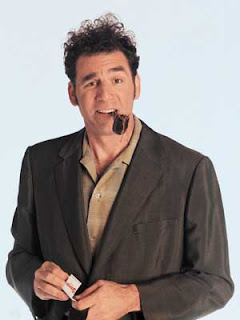Are you in the mood for something different and fun today? I sure hope so...lol
They say a picture is worth 1000 words and I thought it would be fun to see what "words" came to mind for you when you looked at the three images below. Could you fit this image into the current story you are telling? How would you fit it in and explain it to others?
 |
| Image One |
She lets out a heavy sigh and says out load to nobody, "Grace, dear girl, how on earth did you get here and what are you going to do now?" Suddenly her ears are filled with laughter from a small child that is building a sand castle with their mother about six feet away from where she is sitting. She almost wants to cup her ears with her hands to block out the merry sound. Even the slight warm breeze is setting her jagged nerves on edge. She wants to scream out to the world and all that will listen, "There are such dangers in this world! Why do none of you seem aware of all the danger around you?"
Instead, she settles herself down as she knows if she went off someone may think she is crazy and may call the police. This is the last thing any off duty cop wants and she is no different. The department psych exams can be such a bitch and is the last thing her tired mind needs. She closes her eyes and lets the sound of the water carry her to a place of relaxation and focus. She needs to focus if her plan is going to play out the way she intends it to...
 |
| Image Two |
Bobby and Mark couldn't believe their luck! They needed a good place to hide but this was just too good to be true? They've stumbled upon an abandoned trailer and although it has no heat, running water or amenities they can see for miles from every direction. Surely, nobody would even to think to look for them here but if they did they would see them coming. Bobby was fairly certain that eventually someone would come looking for them because nobody steals from Jimmy Dix!
Bobby and Mark were quite proud of themselves. In their eyes, they had done the impossible when they managed to slip by all of Jimmy's goons and managed to steal the Monnet painting back from him.
The quiet was starting to get on Mark's nerves and he was anxious to settle on a plan that might lead to some sleep. "What do you think Bobby? We can lay low here until we can come up with a plan to get out of this God forsaken town. We could take turns keeping watch so we can get some rest. I think it's perfect."
Bobby was looking out through the windows, "I guess we could do that. We could go in 5 hour shifts and you could go first if you want. I'm still a little jazzed and don't think I could sleep."
Bobby didn't need convincing as he headed towards the small back room and found a half decently clean spot on the floor to lay down. Within minutes he was sleeping in a deep dreamless sleep. Mark figured he'd give him just a little while longer before he got in the car and left Mark for Jimmy Dix to find...
 |
| Image 3 |
The absolute silence and serenity was what made this place so magical. Val had been here so many times that Norm sometimes wondered if she still felt the awe that he did for the beauty surrounding them. As he enjoyed his surroundings and reveled in the slow pace, he could hear Val's quiet sobs coming from the back room as she looked through her father's private things. He so wished he could offer her the comfort that she seemed to need but it just didn't seem like anything he said or did offered her any relief. This kind of hurt just took time to pass. As he was trying to come up with yet another distraction Val's wail cut off his thoughts and he ran to her.
"You bastard, you bastard!" Val screamed.
Norm reached her and pulled her close in a tight embrace, "Now, now...what has you so upset?"
"That bastard was keeping a mistress! A mistress...can you believe that?" Val responded, spittle flying from her lips and tears staining her cheeks. "According to this, I am not his only heir..."
Okay, maybe not a 1000 words but, for me, each picture made me feel something different and brought about different story ideas as a result. Next time you get stuck on a scene, try and find some pictures for inspiration! OR FOR FUN RIGHT NOW....Pick an image and tell me what you see and how it fits into your story!
Have a great day :-)
Becky








